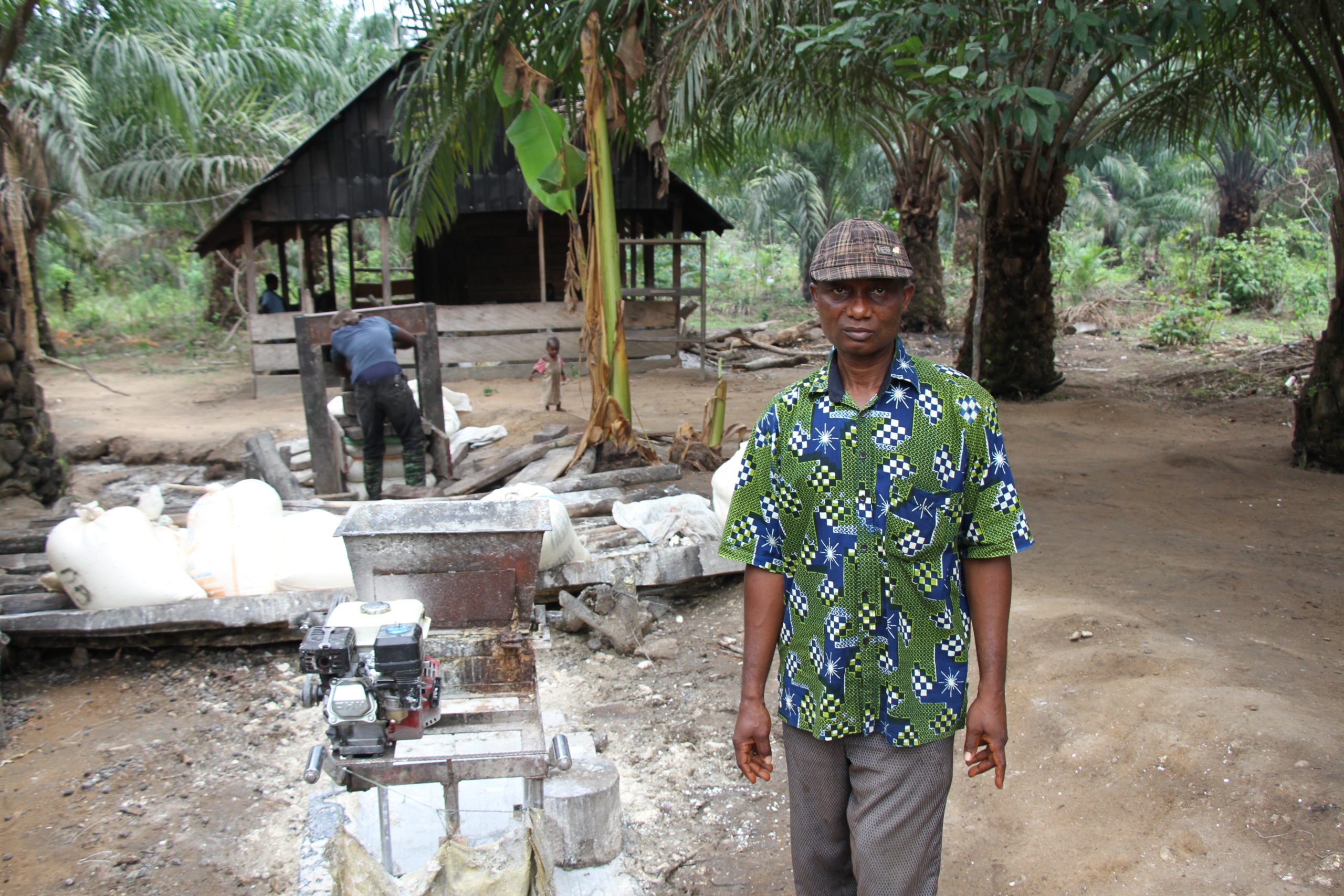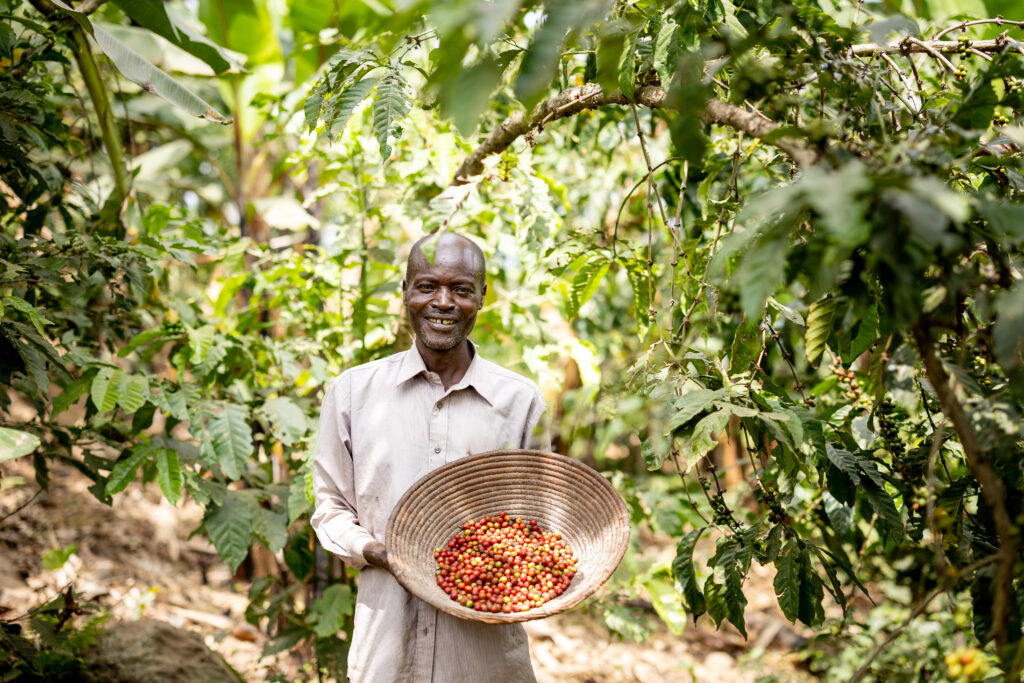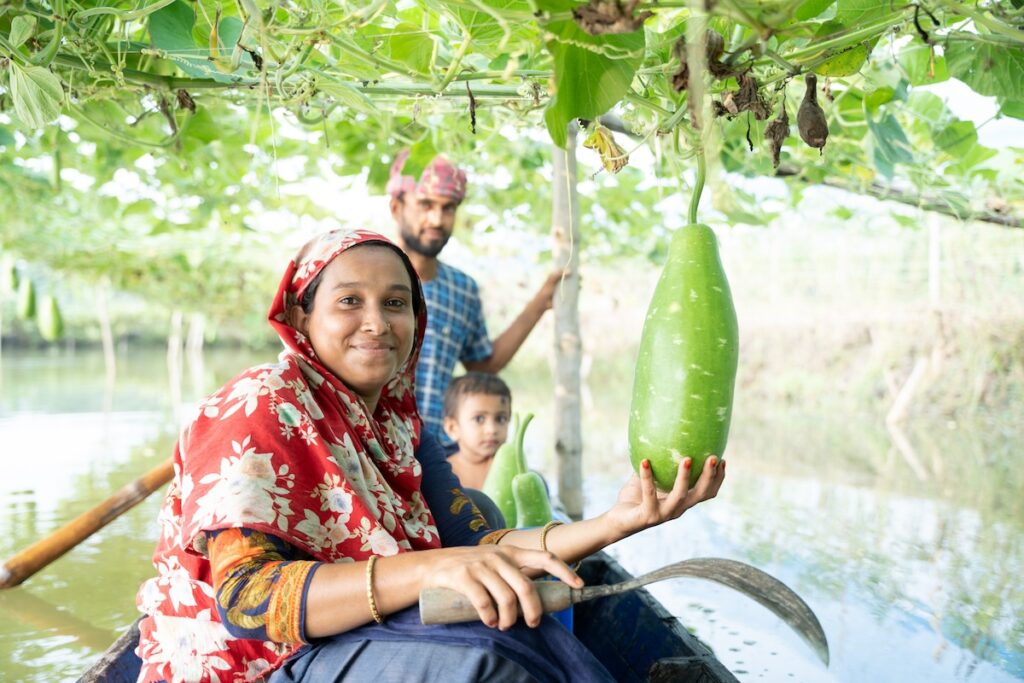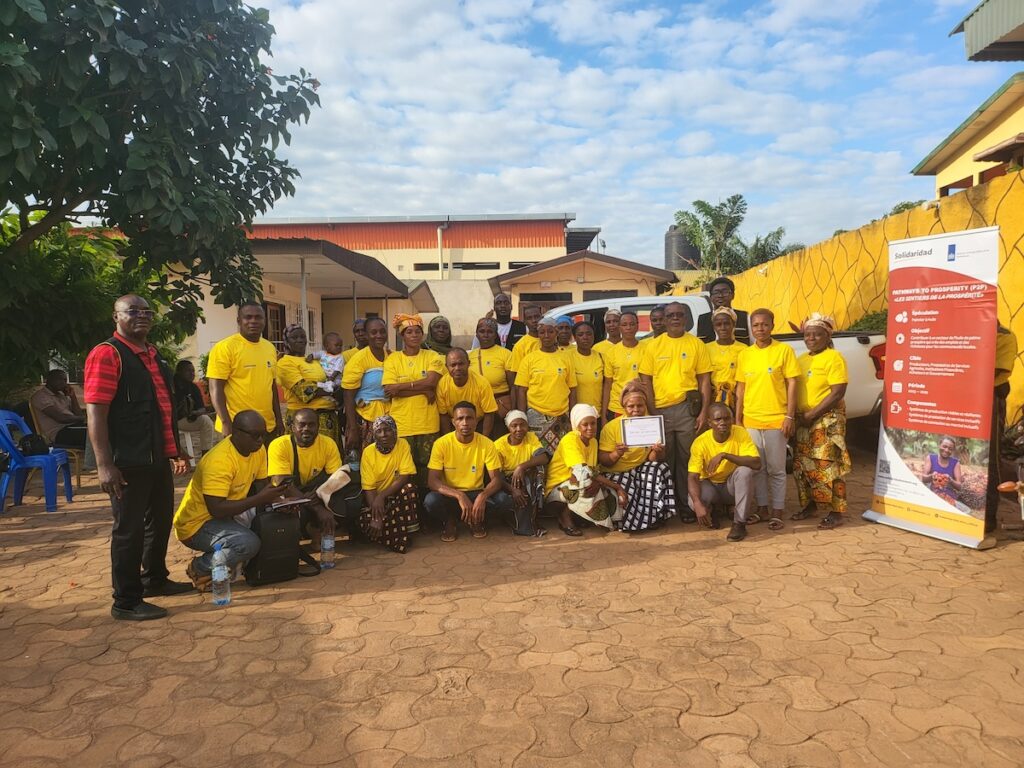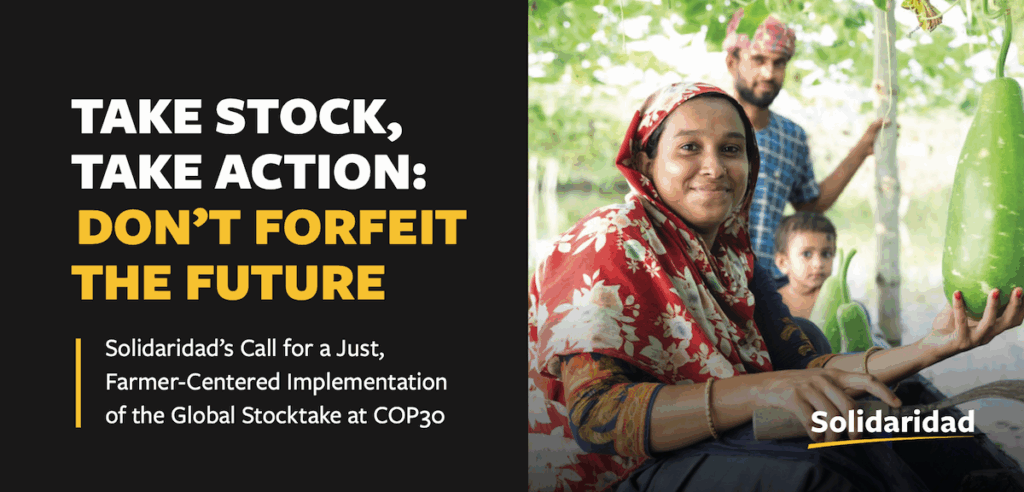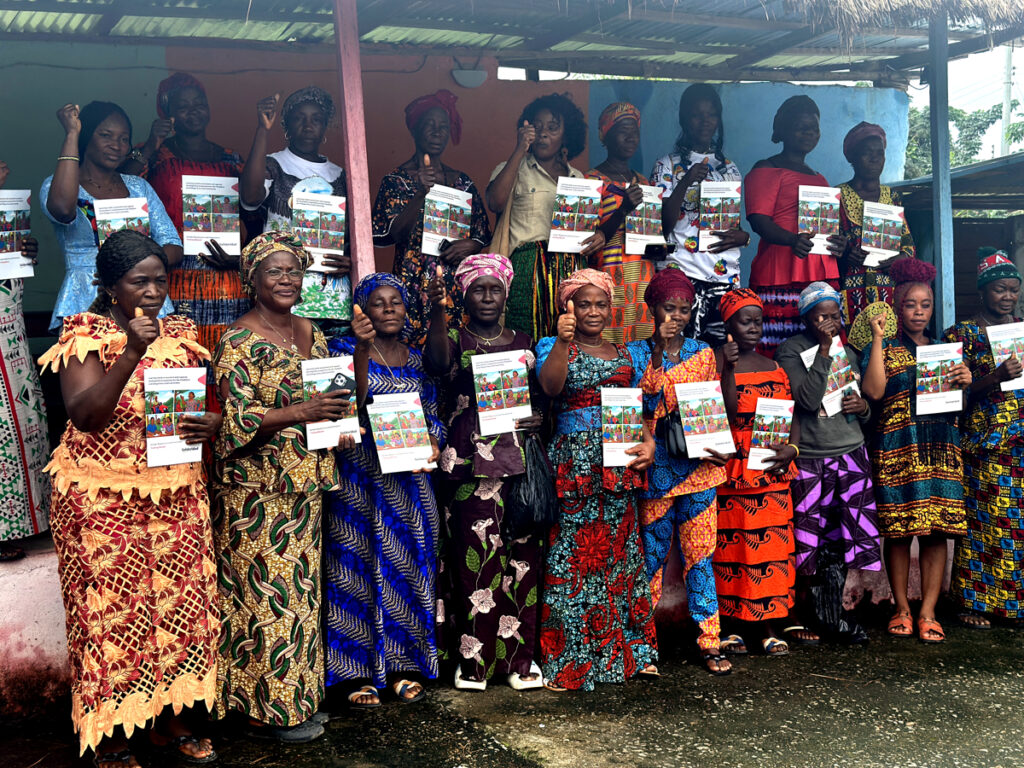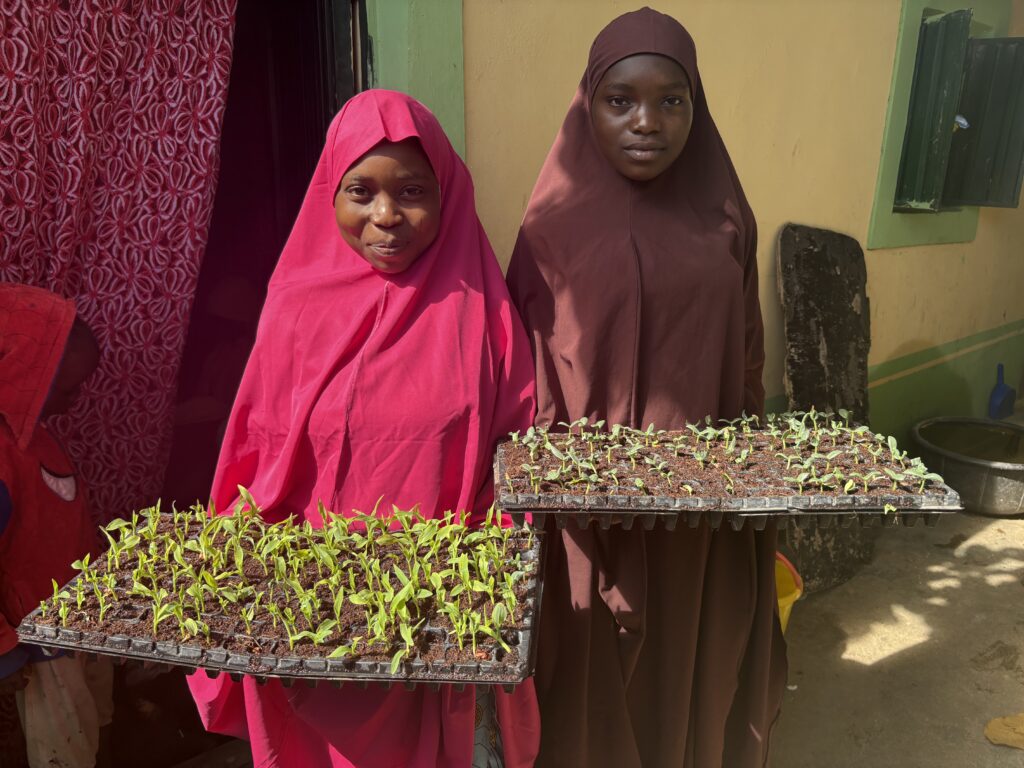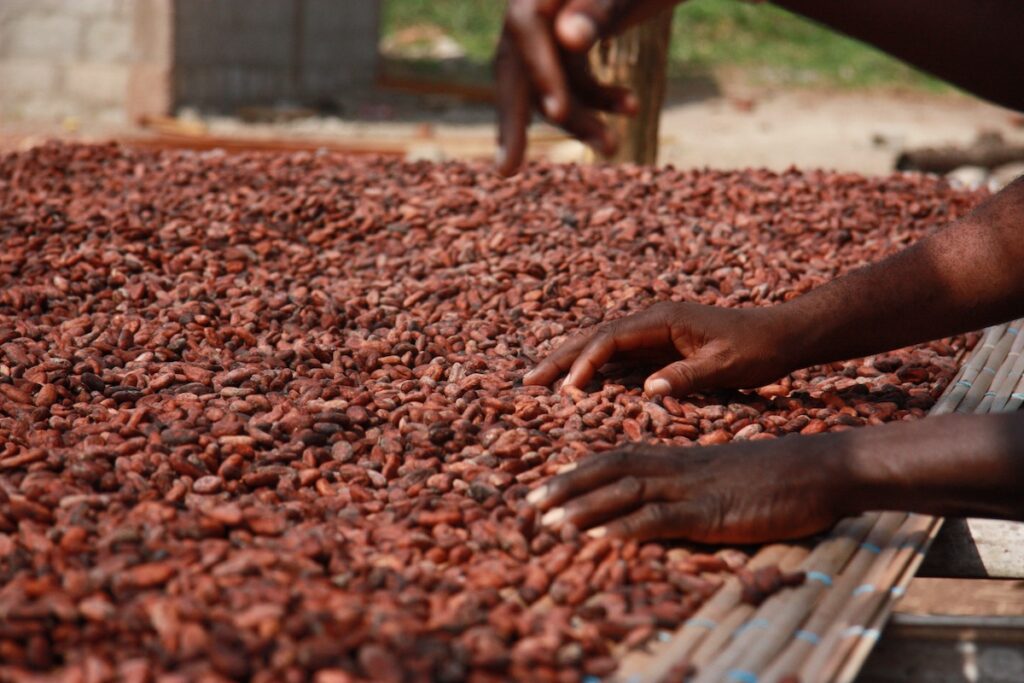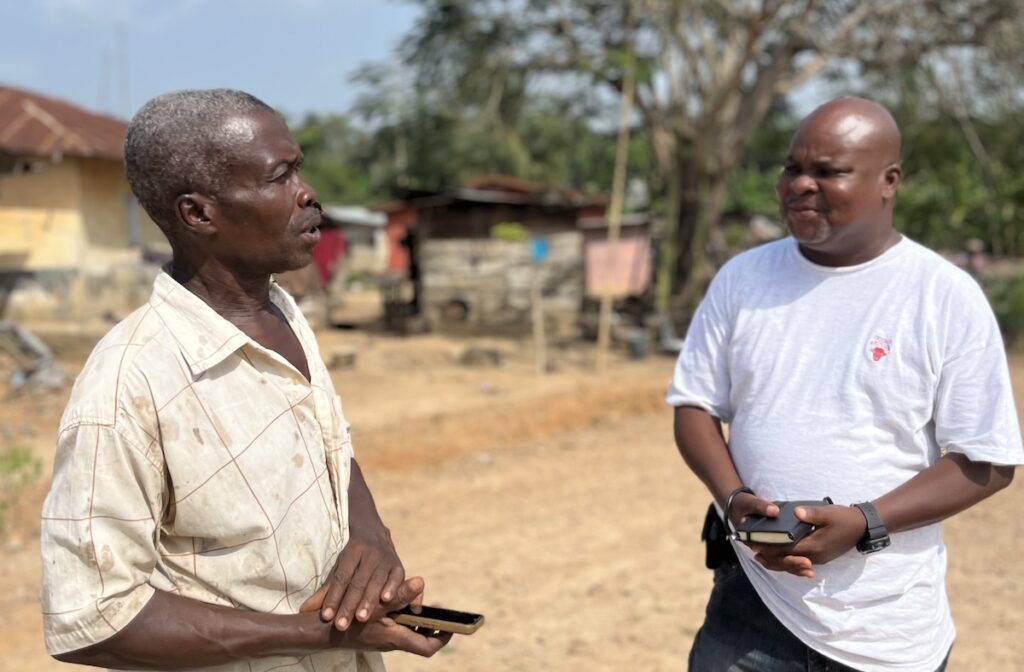In Nigeria, most smallholder oil palm farmers rely on a single source of income. The unpredictable nature of agriculture makes it even harder for these farmers whose livelihood depends solely on proceeds from the sales of fresh fruit bunches and palm oil. This, coupled with the seasonality of the crop and price fluctuation, makes it difficult for the farmer to have a consistent living income.
“My family’s livelihood depended mostly on the yield from my oil palm farm. It was always difficult to meet the needs of the family when yields were low or during the off-peak harvest season,” says John Tangba, an oil palm farmer in Etung local government area of the Cross River state in Nigeria.
Solidaridad, through the National Initiative for Sustainable Climate-Smart Oil Palm Smallholder (NISCOPS), has been building the capacity of 138 oil palm farmer groups in alternative income-generating activities under the programme’s income diversification initiative.
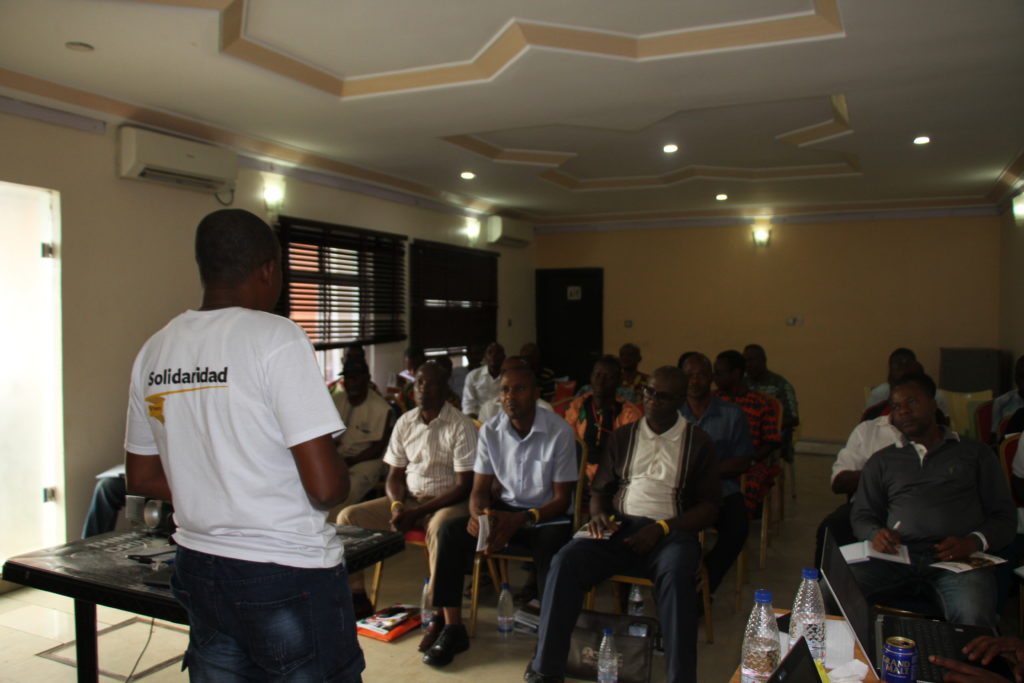
New skills create new opportunities
The groups learned skills in establishing other businesses such as setting up small-scale oil palm mills, cassava processing mills, poultry and fish farms in their oil palm fields. Beneficiaries learned how to process both oil palm and cassava (a staple) for themselves and others within the community at a fee, while adding value to their own commodity.
Two years ago, Tangba, a beneficiary of the training, established an oil palm mill, a cassava processing mill and a poultry farm in his 10-hectare oil palm farm. This has improved his fortunes.
My family and I are now living a better life, thanks to the income we generate from the three small businesses, aside from my oil palm farm. The daily earnings from the two processing mills and the quarterly proceeds from my poultry has virtually doubled my monthly income to 75,000 Naira (181.80 dollars).
John Tangba, oil palm farmer in Etung, Cross River state in Nigeria
With his growing income, Tangba has been able to purchase a Range Rover van worth 1.6 million Naira (3,878.23 dollars) and recently, a power generator worth 450,000 Naira (1,090 dollars) to support his businesses.
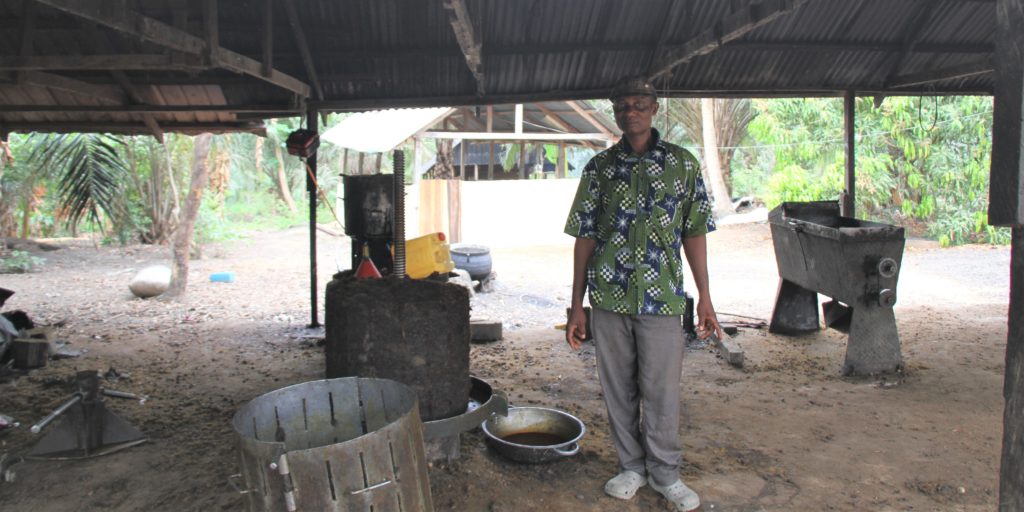
Diversification to build resilience
Dr Samuel Ogallah, Solidaridad senior climate specialist for Africa and country technical lead for Nigeria said, the income diversification initiative is one of the strategies the organization uses to enable smallholder farmers to improve their income and welfare, and also to build resilience.
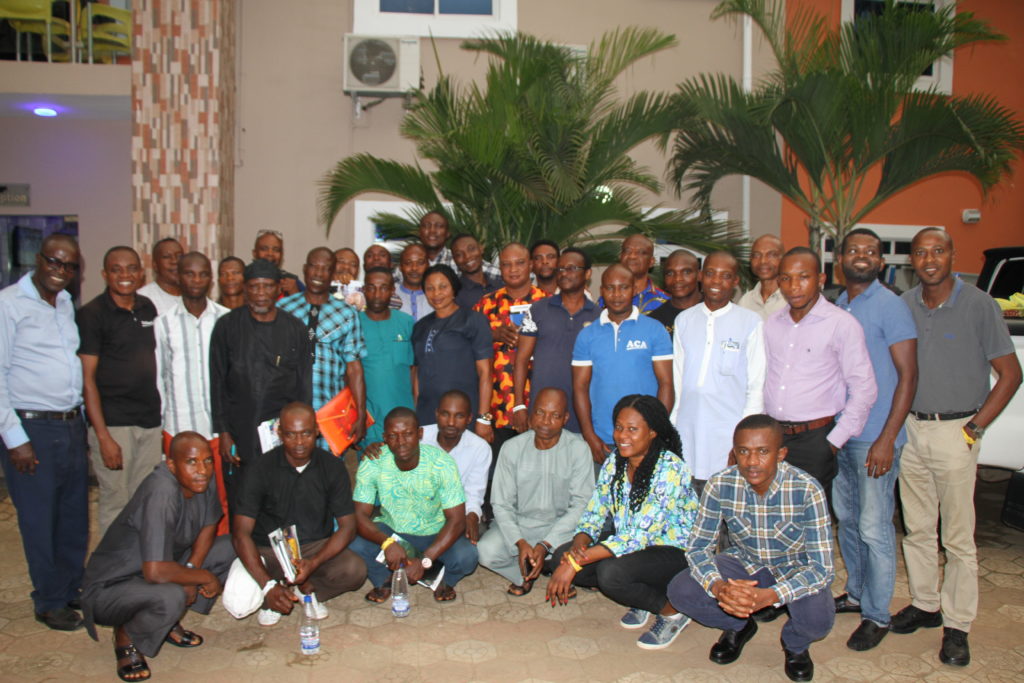
“Solidaridad does not just build the capacity of smallholder oil palm farmers to increase sustainable production and reduce emissions from agricultural practices, but also empower them to improve their livelihoods. This will help them adapt to the changing climate,” says Ogallah.
The National Initiative for Sustainable Climate-Smart Oil Palm Smallholder is funded by the Government of the Netherlands and supported by Henkel. The programme is implemented in 137 communities in Akwa Ibom, Cross River, Enugu and Kogi states of Nigeria. It seeks to contribute to the attainment of self-sufficiency in palm oil production, through climate-smart agriculture practices and sustainable intensification of farms and improving smallholders’ productivity and livelihood.

